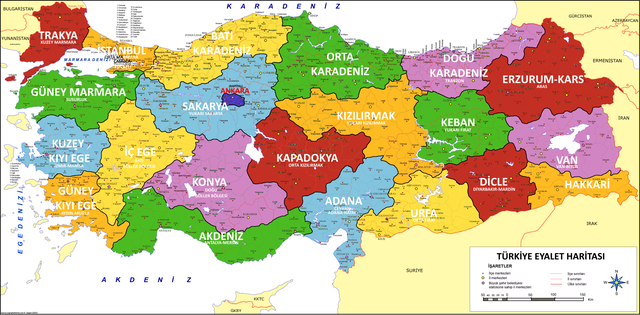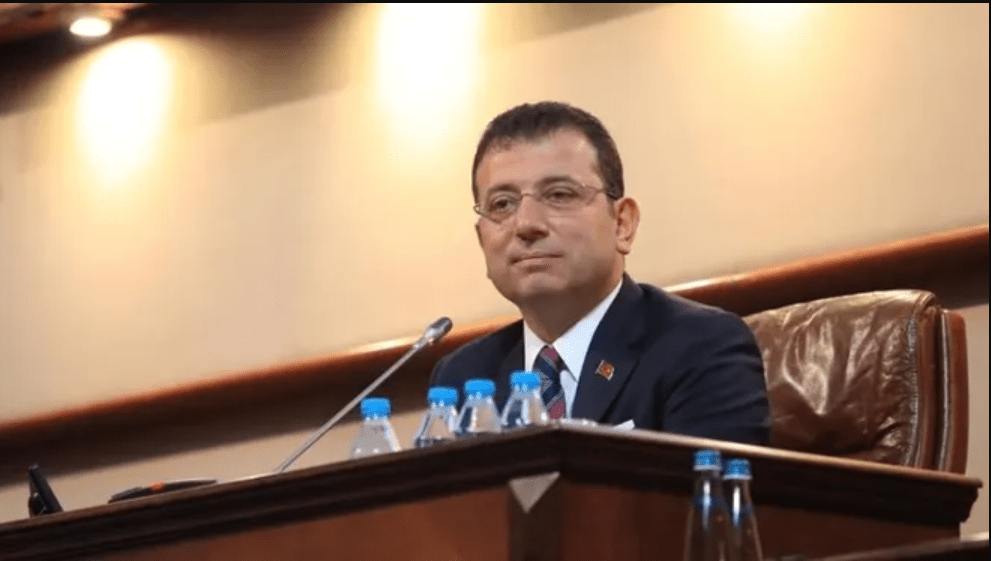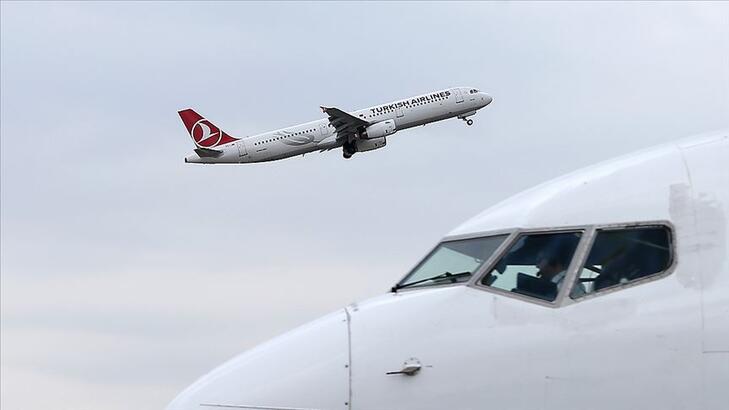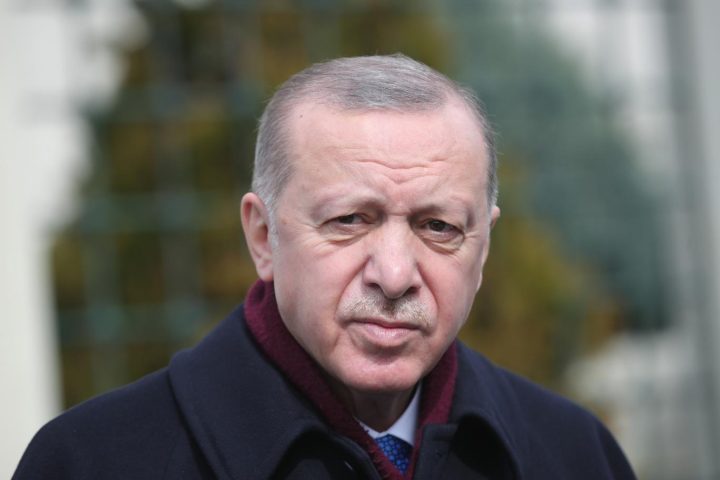Last week, Turkey deployed armored vehicles to the Idlib region of Syria in order to be prepared for an attack on its military units outside its borders. The military convoy passed through the Cilvegözü Border Gate in Hatay and was assigned to the bases in the Idlib region. However, the painful news of the expected attack in Syria came from Northern Iraq.
On December 23-24, fierce clashes took place between the Turkish Armed Forces and the PKK in the Hakurk region, and the Ministry of National Defense announced that 12 sons of our country were martyred in the said clashes.
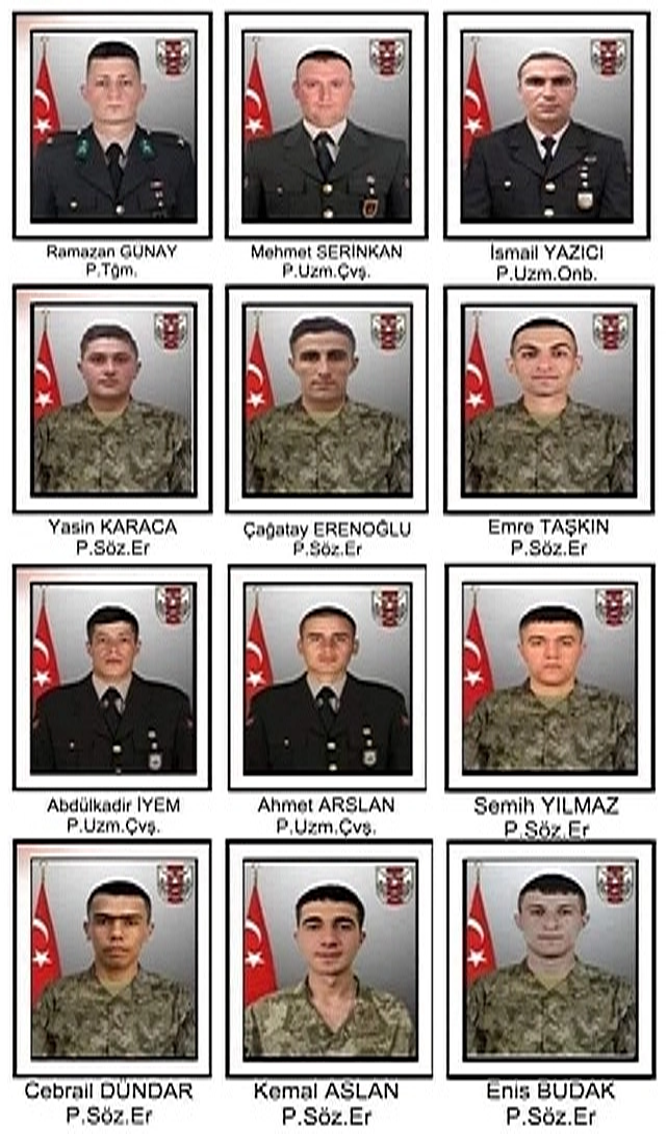
The process of the terrorist attack is also interesting. The terrorists’ plan to infiltrate the bases in northern Iraq was made in Syria. It is said that at the terrorist meeting in Qamishli, a decision was taken to carry out an attack on 7 points in the Zap, Hakurk, Gara and Metina regions.
There are some reports that the terrorists who led the attack, codenamed Welat, Hussein and Helmet, were brought to Sinjar with their technological equipment and weapons from the American-owned Rubaria military airbase in Darbesiyah, south of Malikiyah in Qamishli and in the countryside of the city of Derik.
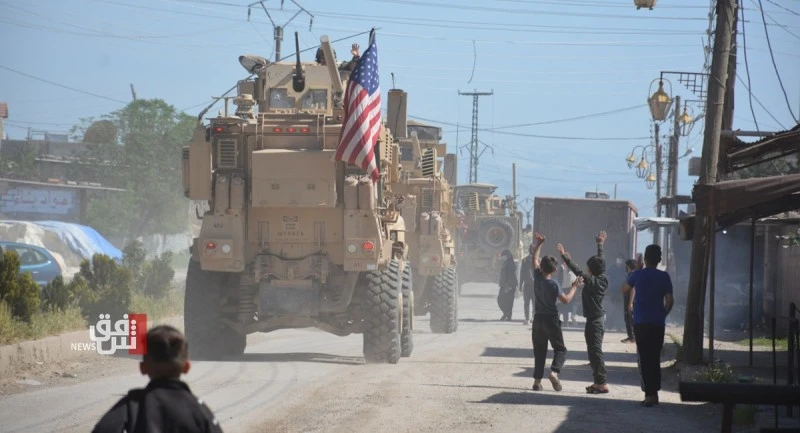
Rubaria, where US forces are deployed, is located in the border triangle between Syria, Turkey and Iraq.
What could be the reason for the PKK terrorist organization, whose activities had come to a standstill for a long time, to suddenly appear and attack Turkish Armed Forces elements?
Could the PKK’s latest attack be linked to the vote on Sweden’s NATO membership, which is being discussed in the Foreign Affairs Committee of the Turkish Grand National Assembly?
Who is trying to block Sweden’s admission to NATO?
What is the real purpose of the dark forces behind this latest terrorist attack, which is likely to lead to a change in the agenda of the ruling party, which is allegedly preparing for a new Kurdish opening?
Presidential system and transition to a federative government…
Discussions on ethnic autonomy are not new. In the Ottoman Empire, ethnic elements first asked for autonomy and then got their independence. Greece is like this, Bulgaria is like this, etc. Only the Arabs didn’t want autonomy, they were attracted to the British’s yellow gold and homosexuals like Lawrens.
Today, rapid population growth and a demographic of almost 10 million irregular migrants and refugees are forcing Turkey to reform its regime.
It is precisely at this point that the modeling of autonomous local governance, in which local governments are empowered and the central government is less involved, and the demands of ethnic communities for autonomy in terms of governance style are almost intertwined and become tangled. In a manner of speaking, the horse’s footprints get mixed up with the dog’s footprints.
A federation or federal state can be defined as a political system in which more than one ethnic element participates in accordance with their will while preserving their regional differences and richness, and in which they are autonomous in their internal affairs to a wide or narrow extent according to the agreement between them.
In Turkish history, the Ottoman Empire had built a political, economic and military state structure with a semi-federative Anatolian Beylerbeylik – Rumelia Beylerbeylik system. The disintegration of the empire and the parting of the ways of the empire’s stakeholder ethnic peoples, the Greek, Bulgarian, Serbian, Montenegrin, Albanian, Armenian and Arab revolts, and the Anatolian-centered War of Independence made a unitary state structure necessary and imperative for the longevity of the newly established Turkish Republic.
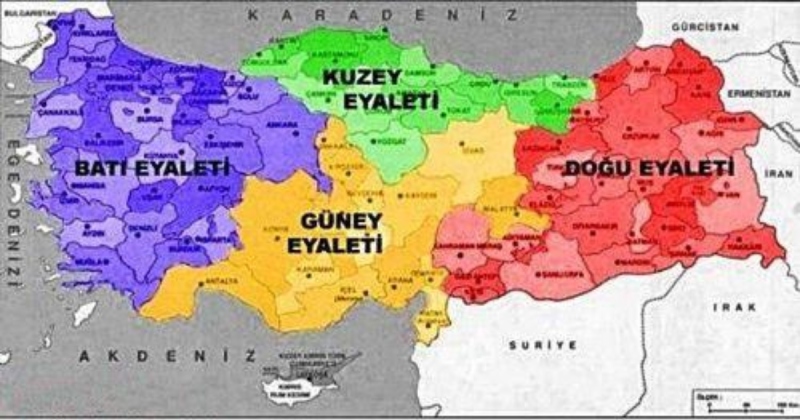
For this reason, whenever state/federative governance is on the agenda in Turkey, security concerns are mobilized and it is said that these discussions constitute a threat to the indivisible integrity of the homeland and someone is declared a traitor.
At the center of the debate on the state system are concerns that this model would disrupt Turkey’s unitary structure and eventually lead to the division of the country.
Although there is an association between the provincial system and the Kurdish question, in retrospect, it can be seen that Kurdish politicians do not have a monopoly on discussions about the system and that politicians from across the political spectrum have also supported the system.
It is precisely at this point that President Erdoğan’s statement “If we comprehend the Misak-ı Millii, we will understand what our responsibility is in Syria and Iraq” gives a different meaning to the discussions on autonomy or the state system.
İsmet İnönü and the State…
The Republic of Turkey has been keeping the ethnic federation thesis on its agenda for years, especially in the Cyprus talks. One reason for this may be to get rid of the unitary state model, which has served as the armor of the republic since 1923.
As a matter of fact, İsmet İnönü, the Prime Minister of the time, declared to the world in a statement published in the American New York Times newspaper on February 4, 1964 that the Republic of Turkey would not accept any political solution other than “ethnic federation” in Cyprus, and said, “The minimum solution we will accept for Cyprus is federation”.
In 1964, the “political solution” proposed by the Republic of Turkey to the Cyprus problem was “Ethnic Federation”. At that time, there was neither the terrorist organization PKK nor the Kurdish problem.
Who owns the patent on the autonomy/state debate?
Because of the Kurdish opening, those who want to give or label President Erdoğan the first place in this issue may be frustrated. Because who else is there until it comes to Erdoğan?
In Turkey, it is generally believed that the discussions on the state system were first initiated by Turgut Özal, the 8th President of the Republic, whose family is also of Kurdish origin.
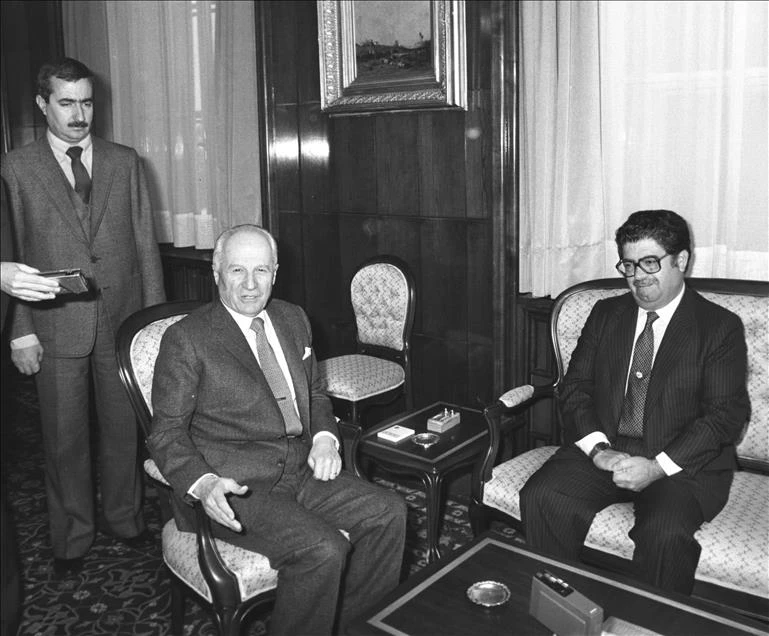
However, contrary to popular belief, it was Kenan Evren of Turkish origin, who rose from the presidency of the National Security Council to the 7th presidency after the 1980 military coup, who brought this issue to the agenda. This means that if talking about the State System is treason, then Kenan Evren, who is of Turkish origin, also belongs to this category. Can there be such a twisted mentality?
Let’s talk about the process briefly…
In October 1983, a decree on regional governorships was drafted and sent to the Özal government, which took office shortly afterwards. Decree 71 on Regional Governorships envisaged the division of Turkey into eight regions, each with a central province, and the gradual transition to a “provincial form of government” in which governors would be elected by the people.
However, the ANAP government headed by Turgut Özal, a Kurdish Naqshbandi, rejected this decree, which had been prepared by his predecessor Bülend Ulusu on the instructions and at the request of force commanders who were members of the National Security Council (NSC) and NSC Chairman Kenan Evren.
Was this rejection really motivated by the idea of Turkish Nationalism or by external forces that did not want Turkey to have influence outside its borders?
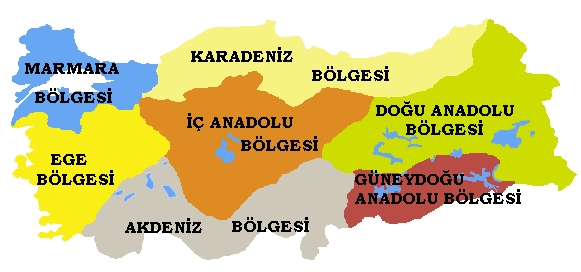
However, the rejection of the decree did not take the state system off the agenda. Just before the 1987 general elections, reports appeared in the press that seven geographical regions in Turkey would be transformed into provinces.
The Özal government was reportedly working on making seven geographical regions states and on steps to strengthen local governments.
The model Özal announced in March 1989 in Konya’s Ereğli district was also seen as an example of a state system. According to this model, the provinces declared metropolitan cities would be in contact with the provinces around them: “As the number of provinces exceeds 100, provinces with big cities will also become ‘big provinces’. There are 16 provinces in Turkey with this feature. These 16 provinces will be connected to the provinces around them. But this does not mean that all provinces in Turkey will be connected to a ‘big city’. Maybe that will come in time. But this may be the beginning of a move towards a ‘state system’.”
The reason for Özal’s speech was that the information that the US was preparing for the Gulf War had already reached Ankara. Özal, who opened the border gates to the Kurds that Saddam had tried to destroy with the Halabja Massacre, perhaps wanted to start this state system with the Iraqi Kurds. However, the calculation at home did not fit the market and the wrong calculation returned from Baghdad.
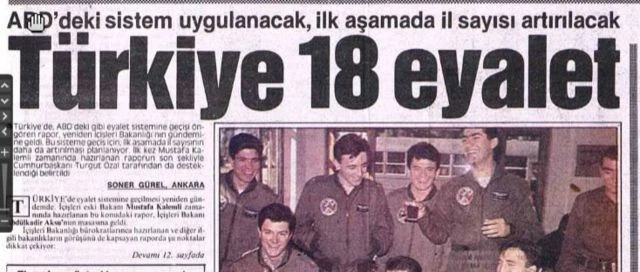
In 1990, the Ministry of Interior prepared a report proposing the division of Turkey into 13, 15 or 18 provinces. This report, which was prepared in consultation with other ministries, included proposals such as the establishment of a system similar to that in the US, increasing the number of provinces, even increasing the number of provinces from 81 today to 120 at that time, and electing governors by the people.
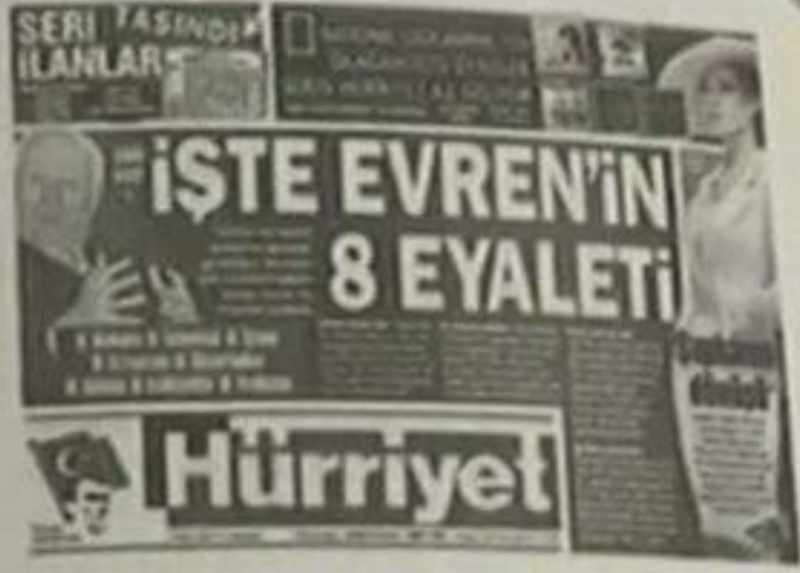
It was even written that the Americans had taken this system from the Ottoman Empire in order to make this issue acceptable to the militarists and nationalist Turkists who did not want to compromise the Kemalist unitary state structure.
Although the discussions on the state system were attributed to Özal, in the following years they were included in the programs of the parties that make up the PKK’s political wing and were even brought to the agenda in the Turkish Grand National Assembly.
Federation Studies of the Turkish General Staff
Immediately after the September 12 coup d’état, a working group formed under the General Staff compiled and presented a report on the subject;
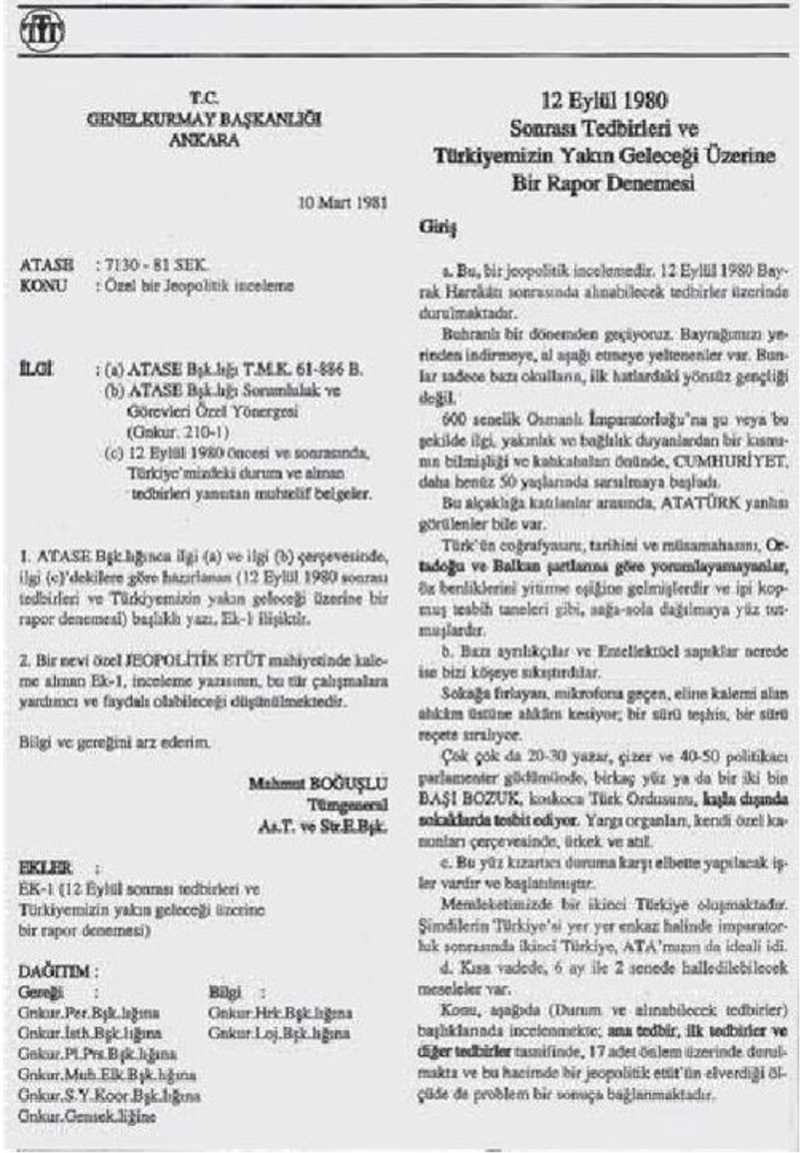
“T.C. CHIEF OF GENERAL STAFF – ANKARA
March 10, 1981
ATASE: 7130 – 81 SEK.
SUBJECT: A Special Geo-political Review – A Report on the Post-September 12, 1980 Measures and the Near Future of Turkey:
(…) The nation’s trust in Ankara has been seriously shaken and Turkey has reached the limit of being able to be governed from a single center.
(…) Each provincial center should be equipped with legislative, executive and judicial powers and National Assemblies should be established in 67 provincial centers.
(…) Between 1919 and 1938, the single leader Gazi Mustafa Kemal Atatürk in Ankara was enough for the whole of Turkey. Today, there is a need for an Atatürk in every province, not just one, and 67 April 23, 1920 Assemblies.
(…) Greeks are former Ottoman citizens. (…) We should establish a federation with Greece.
(…) Cyprus could be divided into four parts, Kyrenia could be annexed to Turkey, Paphos could be left to Greece, and a federated state could be established in the remaining territories: Greek-Turkish Federated State.
(…) TRT and other broadcasting organs should mention the Ottoman Empire’s tolerance towards minorities on appropriate occasions.
(…) I submit the information and necessity. Mahmut Boğuşlu Major General As. T. and Str. E. Bşk”
According to Cengiz Özakıncı, the “deep mission” of September 12th was “ethnic federation”. The first armed action aimed at leading Turkey to a “federation” was not the PKK’s August 15, 1984 Şemdinli-Eruh raid, but the coup of September 12, 1980, which preceded it.
For thirty years, since the September 12 State Federationist Military Coup, our society has been in line with the federation demands of the West;
– On the one hand, by some soldiers and their civilian supporters who, like Evren, continue Evren’s line, appear to be Kemalists and speak of unity and solidarity, while at the same time engaging in federationist activities behind closed doors,
– On the one hand, by the “Federationist PKK” and its civilian supporters,
– On the one hand, the federationist “editorial staff” of the media, a three-headed “trivet”, is preparing for “federation”.
I am not on the same side as Cengiz Özakıncı on this issue.
I believe that an ethnic federation outside Turkey’s borders is an administrative, political, economic and military solution for our country with a population of 85 million.
Where to start?
Turkey hosts the largest number of refugees in the world.
According to official figures from the United Nations High Commissioner for Refugees (UNHCR), Turkey hosts 3.7 million refugees. As of November 30, 2023, the number of Syrians under temporary protection status registered in Turkey decreased by 26 thousand 663 people compared to the previous month and reached 3 million 237 thousand 585 people.
Since January 1, 2023, the number of registered Syrians has decreased by 298,313 people to the lowest level in the last 7 years. Around one million Afghan and Pakistani migrants live in Turkey.
These irregular migrants, especially Syrian refugees, are ready to become federative stakeholders in a new integration project. Outside our borders in Syria and Iraq, we do not only have Kurdish kinsmen, we also have Arab kinsmen.
The new presidential system gives President Erdogan, the party’s President, a great deal of power. The Turkish constitution, which was comprehensively revised in April 2017, paved the way for the current Turkish-specific presidential system as part of a systemic change.
Since then, Turkey has moved from a parliamentary to a presidential system. This was completed with parliamentary and presidential elections in June 2018, and the office of the Prime Minister was abolished.
Turkey will struggle to achieve sustainable growth and prosperity under the current presidential system.
State system in the statutes of Hüda Par and DEM…
Zekeriya Yapıcıoğlu, the chairman of HUDA PAR, recently said in his speech at the General Assembly of the Grand National Assembly of Turkey, “We say that we can freely discuss the governance models such as the state system, autonomy and federation with all their positive and negative aspects.”
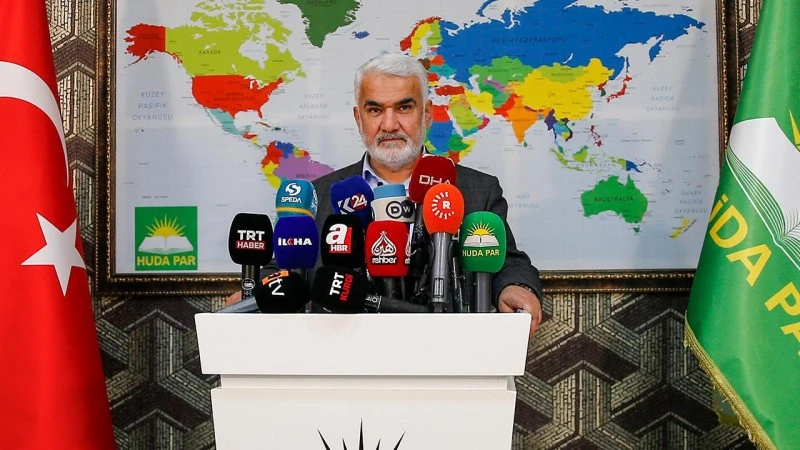
In terms of its internal dynamics and party policies, Hüda Par is a political and religious movement that acts with an ummah consciousness in the Islamic geography. Therefore, it is inevitable for it to establish contact with the Kurdish people in Kurdistan. In this context, seeking dialog with Kurdish Islamist parties both in Northern Iraq and Rojava is both a proper strategy and a necessary process for the people and state of Turkey.
In this context, it is important that Hüda Par headquarters and its executives partner with Iraqi Kurdistan Komala Islamic Party and Iraqi Kurdistan Büzitnava Islamic Party.
What this means is that there are not only nationalist and Marxist movements in the Kurdish geography, but also Kurdish Muslims from Turkey who are conscious of the ummah, who are committed to the brotherhood of the Muslims of the world, and who stand up against imperialism.
Isn’t the success of the “resolution process” partly dependent on this?
There are many who think that Mosul and Kirkuk, Aleppo and Homs can be included in the circle of brotherhood with the dedication of these Kurdish Muslims.
In the Party program, HUDA PAR includes articles such as “All positive and negative aspects of the state system, autonomy, federation and other governance models should be freely discussed”. Accordingly, along with the rehabilitation of the existing central and local state organization structure, the current structure should be abandoned as a taboo and all positive and negative aspects of the state system, autonomy, federation and other governance models should be freely discussed.
These models should only be implemented if the majority of society agrees that they are necessary for the peace, prosperity and security of society.
These models should only be implemented if the majority of society agrees that they are necessary for the peace, prosperity and security of society.
Similarly, the statute of the Peoples’ Democratic Party includes an article that states, “Within the framework of the principle of the free and democratic unity of nations, to develop the struggle for the discussion and realization of various forms of governance needed by the peoples, including democratic autonomy, and for the right to self-determination.”
As can be seen, the Kurdish right and left are in favor of a state system under the auspices of the Turkish state. Therefore, the third article of the Constitution, “The State of Turkey is indivisible with its country and nation. Its language is Turkish. Its flag is the white crescent and starred red flag, the form of which is specified in the law. Its national anthem is the “National Anthem”. Its capital is Ankara.” There is no change in these provisions.
It should not be forgotten that the ‘key actor’ in the 2013-2015 ‘Resolution Process’ was the state itself, despite the government’s apparent initiative.
Because it is the tradition of the “strong state” that limits the space for civil society in the political solution of the Kurdish issue and social peace-building.
The state tradition in Turkey has, on the one hand, opened a limited space for civil society and, on the other, has largely managed and directed this space.
By the time the US and EU-backed NGOs realized that there was a “state-oriented” or “state-focused” civil society tradition in Turkey, Erdoğan had already broken the table.
Now we can talk again about the search for a solution under Erdoğan’s leadership. Erdoğan’s importance stems from the fact that he is the only leader who can convince the nationalist-conservatives, the largest and most powerful socio-political group in Turkey, in a new solution process. This is because the political solution of the Kurdish issue is largely dependent on nationalist-conservative social segments and Erdoğan has an indisputable influence on these segments.
CSOs took limited part in the 2013-2015 Resolution Process. In the Resolution Process, they mainly focused on lobbying and advocacy activities centered on the AK Party government and the mainstream Kurdish movement. In addition to this, they participated in mediation, discussing the Kurdish issue in the public sphere and promoting a culture of peace.
On Saturday, July 28, 2012, Osman Baydemir, the mayor of Diyarbakır Metropolitan Municipality of the Peace and Democracy Party, the organization of the Kurdish political movement, made a statement that alarmed the nerve endings of the regional states and made their brains throb; “The capital of autonomous Kurdistan is Kamışlı. Diyarbakır is the capital of autonomous Kurdistan, Hevler is the capital of autonomous Kurdistan, Mahabad is the capital of autonomous Kurdistan”.
Baydemir’s speeches suggest that the Kurdish political movement in Turkey should unite under the same roof and join forces, establish organic ties with other Kurdish movements outside the country’s borders, and solve the problems between Kurdish political parties in different countries.
In the fight against terrorism, the necessary sensitivity is already being shown to prevent harm to civilians.
Any dialog and contact with Kurds living outside Turkey’s borders will have a greater impact on citizens of Kurdish origin in Turkey. For this reason, dialog and contacts with the Kurds of Iran, Iraq, Azerbaijan and Syria will definitely have a positive impact on the Kurdish population in Turkey.
It is a fact that our citizens of Kurdish origin living in the Southeast closely follow the administration in Northern Iraq and the PYD movement in Syria. Another fact is that they identify themselves with the Kurds of Iraq, Iran and Syria.
Based on this fact, Turkey, in a manner befitting its greatness and state tradition, should adopt a policy that honors its citizens of Kurdish origin in Turkey and embraces their kinsmen living in the other countries mentioned above. This strategy should be organized not from the inside out, but from the outside in.
There is no institutionalization of a single political organization in the Kurdish geography.
Political formations in Iraqi Kurdistan are tribal and much more localized. From this perspective, the PKK, led by Abdullah Öcalan, has a more regional reach in Kurdistan than its rival or other Kurdish organizations. We all know that the Peshmerga has limited influence in Syria, Iran and Turkey. In fact, the majority of Kurds in Turkey view the Peshmerga as “the Barzani family’s guard regiment”.
The PKK is a deep organization of the Kurds of Turkey, Syria, Iran and Iraq. Its most successful region is Rojava in Syria. This must be taken into account.
Turkey missed the opportunity of Kobani. If Turkey had supported the Syrian Kurds against ISIS/DAESH, a subcontractor of the US and European intelligence agencies that burned two Turkish soldiers alive in the battle of Kobani, the PYD would now be Turkey’s ally.
This is the right time to negotiate with political actors like Selahattin Demirtaş and Salih Muslim, who have been educated in Turkey and know the governing philosophy and red lines of the Turkish state, without compromising the Constitution, whether you call it a federation or a state. Arab tribes in Syria and Iraq will also be eager to join this federation. And don’t forget the demands of the Syrian and Iraqi Turkmens for a “federative state”!
Selected Bibliography
https://npasyria.com/en/65330/
https://hdp.org.tr/tr/parti-tuzugu/10/
https://www.mfa.gov.tr/pkk.en.mfa
https://www.arknews.net/en/node/49328
https://www.dni.gov/nctc/ftos/pkk_fto.html
https://www.swp-berlin.org/10.18449/2023C07/
https://multeciler.org.tr/turkiyedeki-suriyeli-sayisi/
https://www.bbc.com/turkce/haberler-turkiye-39599042
https://www5.tbmm.gov.tr/yayinlar/baskanlik_sistemi.pdf
https://www.rudaw.net/turkish/middleeast/turkey/221220234
https://www.rudaw.net/turkish/middleeast/turkey/1203202314
https://www.turkiyegazetesi.com.tr/gundem/kalles-pusuda-israil-1010868
https://www.crisisgroup.org/content/turkiyes-pkk-conflict-visual-explainer
https://www.mei.edu/publications/turkish-economy-under-presidential-system
https://carnegieeurope.eu/2021/07/26/redefining-u.s.-turkey-relationship-pub-85016
http://www.haberturk.com/gundem/haber/762690-baydemir-kurdistan-icin-4-baskent-saydi
https://www.state.gov/reports/2022-country-reports-on-human-rights-practices/turkey/
https://dogruhaber.com.tr/haber/151197-kurdistanda-pkk-tek-degil-huda-par-da-var/
https://www.bpb.de/themen/europa/tuerkei/255789/das-neue-politische-system-der-tuerkei/
https://ataturk.org.au/gazete-makaleleri/cengiz-ozakinci/12-eylulun-derin-misyonu-federasyon/
https://www.humanite.fr/monde/kurdistan-syrien/la-turquie-etend-sa-guerre-au-kurdistan-syrien
https://www.mevzuat.gov.tr/mevzuat?MevzuatNo=2709&MevzuatTur=1&MevzuatTertip=5
https://www.csavunma.com/birlesik-krallik-yurt-disindaki-askeri-varligini-giderek-arttiriyor/.html
https://www.trthaber.com/haber/dunya/yabanci-ulkelerin-irakta-kac-askeri-bulunuyor-451864.html
https://carnegieendowment.org/2022/11/14/political-change-and-turkey-s-foreign-policy-pub-88387
https://yetkinreport.com/2023/12/25/pkk-saldirisi-ardindan-uc-soru-ve-mecliste-isvec-nato-oylamasi/
https://docplayer.biz.tr/2821491-Hur-dava-partisi-tuzugu-birinci-kisim-kurulus-amac-ve-ilkeler.html
https://www.zeit.de/news/2018-07/09/erdogan-stellt-neues-und-kleineres-kabinett-vor-180709-99-70254
https://www.voanews.com/a/turkey-hits-iraq-syria-with-airstrikes-after-12-soldiers-killed-/7410419.html
https://www.cumhuriyet.com.tr/turkiye/akp-listelerinden-meclise-giren-huda-pardan-ozerklik-aciklamasi-2155777
https://www.institutkurde.org/info/au-kurdistan-irakien-la-turquie-traque-le-pkk-au-dela-de-ses-frontieres-1232552278
https://jusoor.co/tr/details/significant-increase-in-the-rate-of-joint-turkish-and-russian-patrols-in-syria,-what-does-it-mean
https://tr.euronews.com/2023/02/01/kuzey-iraktaki-turk-askeri-ussune-roketle-saldiri-duzenlendi-iran-destekli-milisler- ustlen
https://tccb.gov.tr/haberler/410/55665/misak-i-millyi-kavrarsak-suriye-ve-iraktaki-sorumlulugumuzun-ne-oldugunu-anlariz

